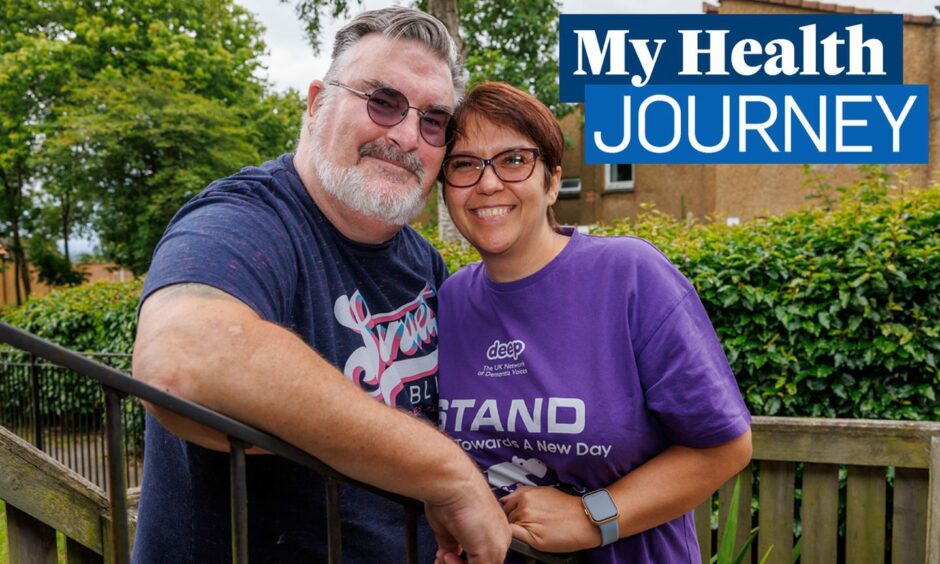
“For the first four or five weeks I just sat in the house looking at the four walls thinking that my life had ended. I couldn’t see a reason to get up in the morning and I contemplated suicide.”
This was how Glenrothes man Gerry King felt after he was diagnosed with early-onset Alzheimer’s disease five years ago – at the age of just 55.
But despite the disease costing him his job, his ability to drive and friends, the grandad-of-two said it has made him appreciate how precious life is.
It has also made him realise what matters most of all – the support of his loving wife Trisha and their family.
“It sounds really funny, but having early-onset Alzheimer’s disease has been one of the best things that has ever happened to me,” he said.
“I say that because it has made me see life completely differently now.
“Before this happened I just worked, made money, came home, had my tea, went to bed, got up the next day and did the same thing.
“It was all focused on earning money to keep the house going.
“But now I think there are much more important things in life.”
Today Gerry, 60, and his wife Trisha, 50, share their story of coming to terms with his Alzheimer’s diagnosis.
What were Gerry’s symptoms?
Gerry first began to notice he had problems with his short-term memory in 2015.
“I was having problems remembering what Trish and I had been discussing. I would ask her the same question maybe 30-40 times a day, which got quite annoying,” he explained.
“My wife also noticed my temperament was changing. I used to be quite a laid-back person but I started becoming quite bolshy and argumentative.
“I thought maybe I was stressed or depressed so I went to the doctors.”
Gerry was given a memory test, which he passed, but his doctor said the figures didn’t appear to represent his IQ.
The doctor believed Gerry might be suffering from depression so he was next referred to a local psychiatrist.
Gerry’s early-onset Alzheimer’s disease diagnosis
In 2017 Gerry took another cognitive test but this time he failed it, badly.
“From there they referred me to a specialist team at Victoria Hospital in Kirkcaldy which consisted of a neurologist, a psychologist and another specialist.
“Over the next 18 months I was tested, prodded and scanned.
“But at the age of 55, I was diagnosed with young-onset Alzheimer’s disease.
“I was shocked but also kind of expecting it because everything was going in that direction.”
Gerry revealed the diagnosis had devastating consequences.
He had to take early retirement from his job in the architects department at Fife Council, where he had been employed for 32 years.
He also had to give up driving.
Gerry continued: “Before this Trisha and I were both working full time.
“We were on a sound financial footing for the first time in many years as the kids were older.
“But that was pretty much ripped away from under us after the diagnosis.”
Painful losses due to early-onset Alzheimer’s diagnosis
“It not only had a devastating effect financially, I lost a lot of personal friends who just stopped coming round,” Gerry said.
“I think that was because of the stigma which surrounds the disease.
“Some people just aren’t sure how to deal with it or what to say to you.”
Gerry, who was put on medication to slow the decline of the Alzheimer’s, felt very low for the next few weeks.
And it reached a point where he couldn’t see a reason to carry on living.
“I had a lovely family, a supportive wife and my kids but there was just nothing for people of my age with young-onset Alzheimer’s disease in Fife.
“I just couldn’t see a point in going on.”
The meeting which changed Gerry’s life
But then he went to a meeting in Kinglassie which would change his life forever.
“I noticed a lady called Ruth McCabe was holding a dementia presentation in Kinglassie.
“I thought it was an opportunity to take our three kids, Cieran, Daniel and Stephanie, along so they could find out more about the disease.”
Trisha said: “Before we went we told the organisers that Gerry didn’t want anyone to know he had Alzheimer’s.
“He didn’t want to talk about it.
“They didn’t say anything but at the end of the session, Ruth asked the group if they knew of anyone who had dementia.
“And [our daughter] Stephanie said: ‘My dad’ and pointed to Gerald.”
From that point on Gerry and Ruth struck up a friendship.
And he went along to another dementia presentation she was holding in Leslie.
He has continued talking about his diagnosis ever since.
“Now I really enjoy speaking about the dementia and trying to educate people about it,” Gerry said.
“I find it to be quite therapeutic.”
The couple also had support from Fife specialist nurse Maggie Simpson who was a member of the diagnosis team and worked with Gerry.
Speaking to Fife businesses and schools
Since then, he and Ruth have gone on to do presentations to businesses on dementia across Fife.
They have also visited local primary schools in the Kingdom.
Gerry has found it very rewarding to talk to children about his condition.
“We enjoy going into the schools because what we were finding out was the older generation were stuck in their ways.
“They had their own views of what dementia is all about and no matter what you said, you couldn’t budge their opinion.
“Whereas with younger kids, they are like a blank piece of paper. They have no preconceptions of what dementia is.
“Then they were going home and doing the presentations to their parents which is brilliant.
“I love doing the presentations – that’s my therapy.”
Fife groups offering support to those with Alzheimer’s disease
Gerry has also helped to set up groups across Fife for people who have been diagnosed with dementia.
The Dementia Friendly Meeting Centre Spaces, run by Fife charity STAND, are led by people living with a diagnosis of dementia and their families and friends, supported by volunteers.
They offer a chance to chat with other people in a similar situation.
Gerry credits his family, which also includes two grandchildren Myles, 3, and Hudson, who is just weeks old, for helping him get through the difficult times.
Trisha said: “We are a team and we need to get through this.
“It has had an impact on our relationship, but I still love him desperately.
“It is an illness and he doesn’t choose to be this way. I have to do my job and be there for him.”
Being positive
He added: “Trisha and I have always been very open with each other and talk about everything.
“It’s important to be positive.
“I am really lucky to have the support of my wife and my kids, I wouldn’t be without them.”
- We’d love to hear about your health journey – have you overcome the challenges of living with a long-term condition? Or have you marked a special achievement despite having health difficulties? Please contact us with your story by emailing: debbie.clarke@dcthomson.co.uk
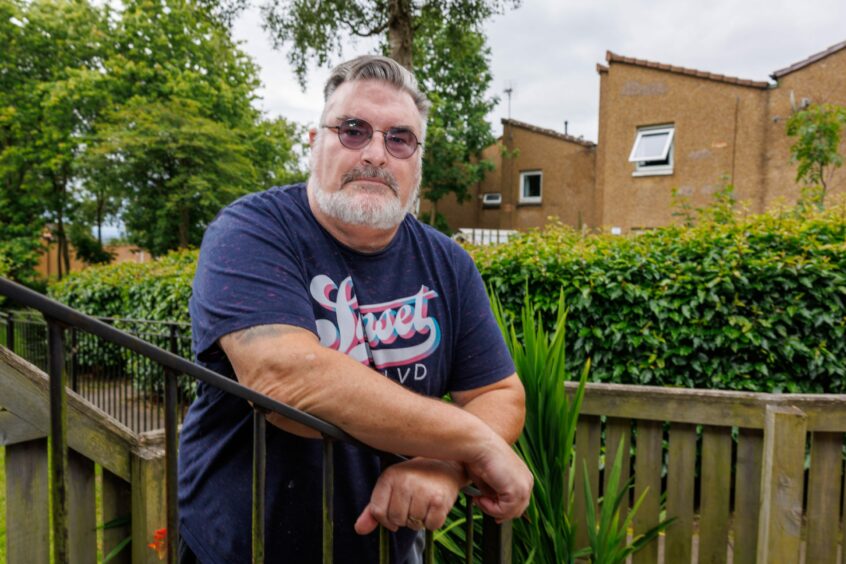
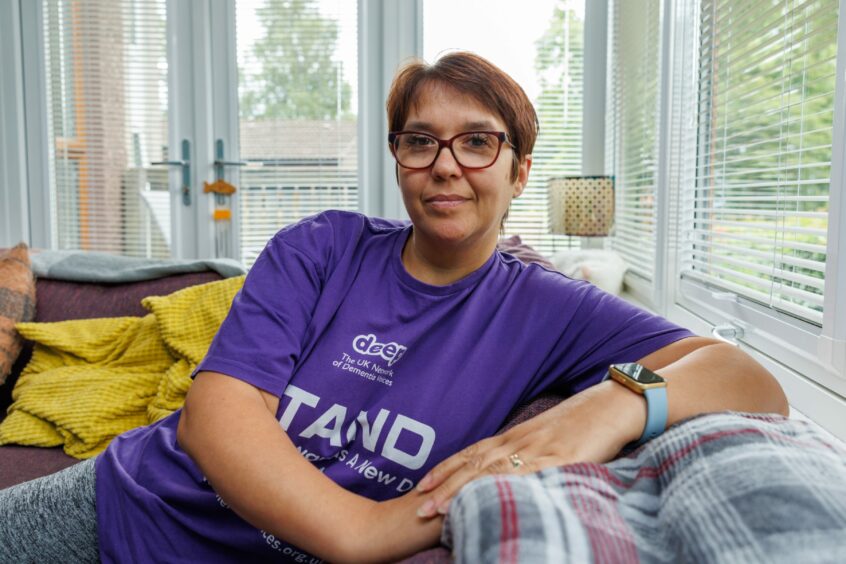
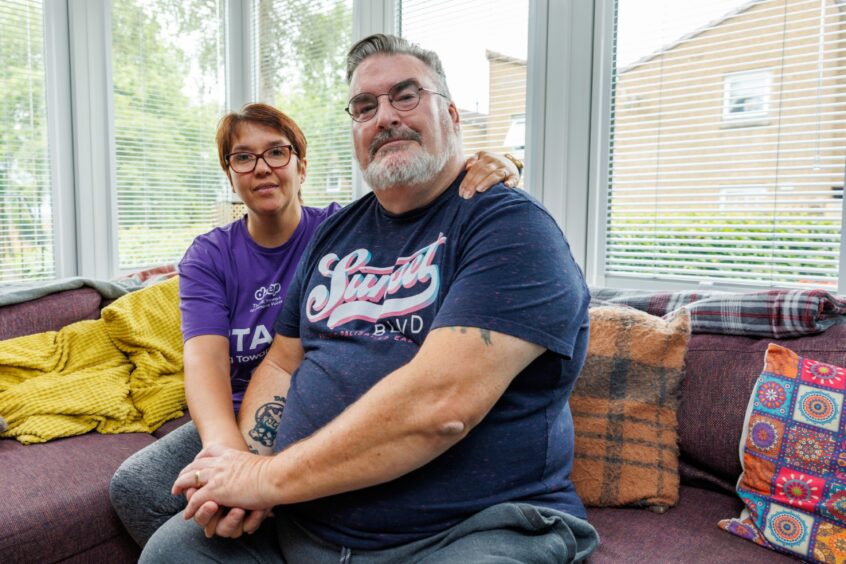
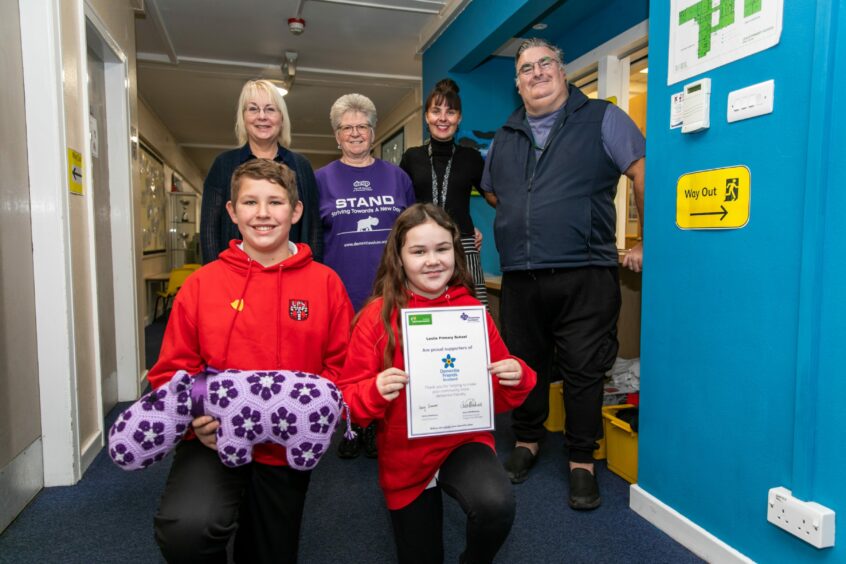
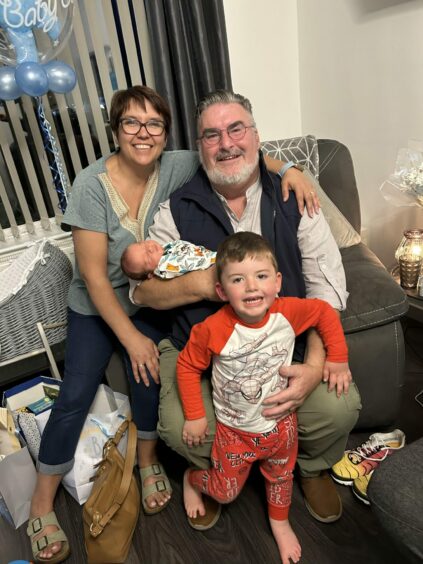









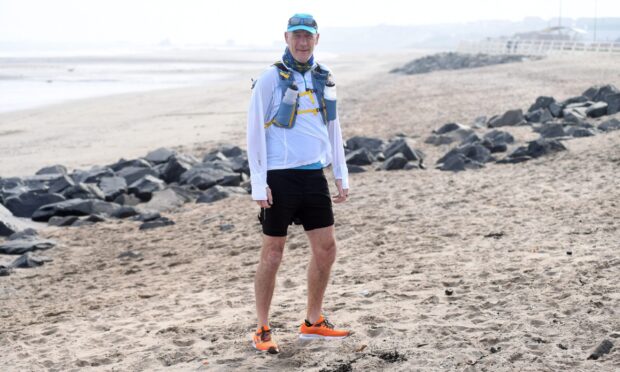
Conversation